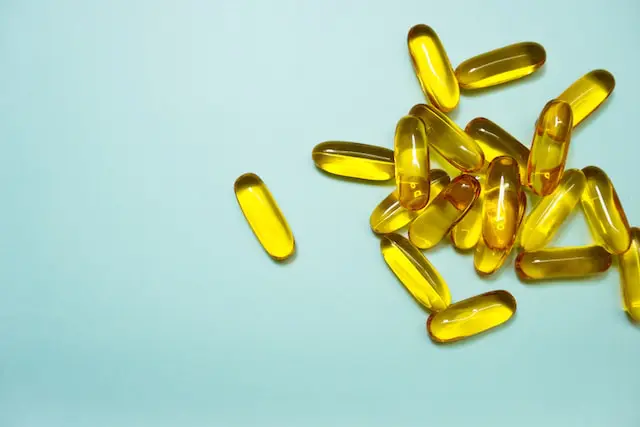Are you looking for how to increase sperm count? Well, according to a recent assessment of the medical literature, there have been more than 50% fewer human sperm globally during the previous 50 years. Similar to earlier rates, in 2006–2010, 9.4% of men aged 15–44 and 12% of men aged 25–44 reported some form of infertility. According to the study, between 1973 and 2018, sperm counts have been dropping by just over 1% annually. By 2018, the typical sperm count has decreased by 52% overall.
Interestingly, the researchers found that the loss in sperm counts was accelerating when they concentrated on specific years, with an average decline of 1.16% per year after 1973 and 2.64% per year after 2020. If action is not taken to address the decline, this worrying trend could trigger a reproductive crisis. In this article, we will discuss about how to increase sperm count.
All About Male Infertility
The term “sperm count” describes the quantity of sperm found in a sample of semen. A healthy sperm count is regarded by the World Health Organisation (WHO) as having at least 15 million sperm per millilitre (ml) or 39 million sperm per ejaculate. Looking for how to increase sperm count?

Male infertility refers to a man’s low possibility of getting his female partner pregnant, generally as a result of the quality of his sperm cells. Fertility is the capacity to conceive without the aid of medicine. Male infertility is influenced by a variety of factors, including sexual function and semen quality. Here are a few instances:
- Libido: The desire to have sex or one’s sex drive is referred to here. Aphrodisiacs are foods or substances that promise to increase libido.
- Erectile dysfunction: Also referred to as impotence, is the inability of a man to obtain or maintain an erection.
- Sperm count: One crucial component of semen quality is the quantity or concentration of sperm cells in a given amount of semen.
- Sperm motility: Sperm cells in good health should be able to swim. Sperm motility is determined by how many migrating sperm cells there are in a sample of semen.
- Testosterone levels: Low amounts of testosterone, the hormone responsible for male sex, can make some men infertile.
How to Increase Sperm Count? (Natural Methods)
Various nonpharmacologic treatments have been used for centuries by practitioners of traditional, herbal, and alternative medicine to increase sperm count and foster improved sperm health. It’s interesting that study has revealed data pointing to the possibility that several of these therapies may increase sperm count. Here are several all-natural techniques on how to increase sperm count:
1. Get Enough Sleep
- According to several research, men who are obese or overweight can increase their sperm count by exercising and losing weight.
- However, there isn’t a lot of solid scientific data connecting a healthy body mass index (BMI) to a healthy sperm count.
- In a 2017 study, scientists looked at how a 16-week aerobic exercise regimen affected sperm count.
- Participants in the exercise programme completed at least three 50-minute sessions each week at a heart rate of 50 to 65% of their maximum.
- 45 overweight and inactive males were the subject of the investigation.
- The findings demonstrated that these men’s sperm motility (ability to move) and count both rose with regular exercise.
2. Quit Smoking
- A meta-analysis of more than 20 research with almost 6,000 participants was done in 2016.
- The investigation discovered strong evidence linking smoking to a drop in sperm count.
- Compared to individuals who smoked tobacco less heavily, those who smoked tobacco moderately or heavily had lower-quality sperm.
- According to the study, smoking reduces sperm count, which has a detrimental effect on male fertility.
3. Avoid Drug Use and Alcohol Intake
- The association between sperm health and medications has only been examined in a small number of controlled research.
- Studying illegal substances is difficult due to ethical issues.
- However, a 2018 study discovered a link between a decline in sperm production with drug usage generally, including alcohol, marijuana, and cocaine.
- It is significant to highlight that there is conflicting information on this subject, and additional study is required to conclusively correlate drug usage with sperm health.
4. Avoid Overheating your Testicles
- In order for sperm production to be at its best, a man’s testicles must be a little bit cooler than his other organs.
- Too much heat may cause testicles to stop producing as much sperm.
- There are numerous techniques to avoid the testicles being too hot:
- Avoid wearing skinny jeans and tight pants; choose loose-fitting attire instead.
- Contrary to briefs, cotton boxer shorts allow for better airflow, which keeps the testicles cooler.
- Avoid wearing pants when you sleep to keep your testicles cool.
- Avoid using saunas and hot baths since they might cause the testicles to become too heated.
5. Be Careful with Toxin Intake
- The size, motility, and number of sperm can all be negatively impacted by chemical exposure.
- Toxin avoidance is essential for both general health and sperm health.
- Take the following actions to lessen chemical exposure:
- If you often handle chemicals, cover your skin by using gloves and long sleeves. Use a mask and goggles to protect your face in addition.
- When cleaning, choose natural cleaning products over synthetic ones.
- Avoid putting pesticides or herbicides on your property, either inside or outside.
6. Know your Medications
- Some prescription medications can potentially decrease healthy sperm production. Once the male stops taking the medication, however, their sperm count should return to normal or increase.
- The production of healthy sperm may be decrease by some prescription drugs.
- The sperm count of a male should return to normal or even rise once he stops taking these drugs, though.
- The following medicines may momentarily inhibit the development and production of sperm: some antibiotics, Anti-inflammatories, Antipsychotics, Anti-androgens, Antidepressants, Opiates, Anabolic steroids (may have a long-term negative impact on sperm count), Methadone, additional or exogenous testosterone.
- Males should speak with a healthcare professional if they believe that a medicine, they are taking is harming their fertility or lowering their sperm count.
How to Increase Sperm Count? (Food & Exercise Methods)
In fact, increasing the intake of foods high in nutrients beneficial to sperm can help to naturally increase sperm count. Focus on the following essential nutrients for how to increase sperm count:
1. Improve Diet & Exercise Regularly

- In the modern world, it can be difficult to establish an effective fitness programme, but exercise can in fact aid to improve sperm production.
- Exercise increases testosterone production, which helps to produce sperm.
- Work on compound exercises and heavy lifting, but stay away from repeatedly training the same muscle groups. It is advantageous for the synthesis of testosterone to provide muscles time to rest and heal.
- In order to maintain good health overall and to produce sperm, a nutritious diet is essential.
- Choose a diet that is heavy in protein, veggies, and whole grains and low in fat.
- Include fruits, vegetables, eggs, meat, fish, and meat products in your diet.
- It’s thought that eating foods like peanuts, walnuts, cashews, sunflower seeds, and pumpkin seeds would boost sperm counts.
2. Intake of Fenugreek Supplement
- Fenugreek is a traditional herbal medicine that has been use to treat unhealthy sperm, with the possibility of increasing sperm count.
- A 2017 study found that the fenugreek seed-derived chemical Furosap increased sperm count and semen quality.
- Online retailers offer fenugreek pills and other items.
3. Intake of Vitamin D
- Researchers still don’t fully comprehend how much calcium and vitamin D intake has on sperm health.
- A 2019 analysis of the literature that looked at 18 studies discovered a strong link between increased blood levels of vitamin D and better male fertility.
- The authors of the study issue a warning on the interpretation of these findings and suggest additional clinical trials to support their findings.
- Additionally, studies indicate that a calcium deficit may have a negative impact on sperm count.
- You may buy vitamin D pills online and at health food stores.

4. Intake of Ashwagandha
- Indian ginseng, commonly known as ashwagandha, has long been used medicinally to treat many types of sexual dysfunction.
- In a 2013 study, 46 men with low sperm counts consumed 675 milligrams of ashwagandha per day for 90 days.
- According to the study, the sperm count of these men significantly increased by 167%.
- Ashwagandha can be purchase in health food stores or online.
5. Lose Weight
- Low sperm count can be improve by losing weight.
- Scientists are still trying to figure out why there is a connection between fat and poor sperm counts.
- According to a recent French study, obese men were 42% more likely than non-obese men to have poor sperm counts.
- In the same study, it was discover that obese males had an 81% increase risk of having no sperm in their ejaculate.
- Some believe that the generation of sperm is affect by the conversion of testosterone into oestrogen in fatty tissue.
- Some people think that having too much muscle in the thighs can raise the temperature of the testicles, which would be bad for the health of the sperm.
6. Intake of Antioxidant-rich Foods

- Antioxidants are chemicals that defend cells by disarming dangerous substances known as free radicals.
- Studies have linked antioxidant intake with an increase in sperm count. A few vitamins and minerals serve as antioxidants.
- The following antioxidants may help maintain a healthy sperm count, according to a 2019 review: Beta-carotene, Beta-cryptoxanthin, Vitamin C, and lutein
How to Increase Sperm Count? (Medical Methods)
Yes, there are medical procedures that can assist boost sperm production and enhance male fertility. Here are some typical medical procedures on how to increase sperm count:
1. Get Test for Varicocele
- Swollen veins that drain the testicles are a defining feature of the disorder known as varicocele.
- It may result in a rise in sperm count and a fall in testicular temperature.
- It is advise that you speak with your doctor if you believe that having varicocele is impacting your fertility.
- Your doctor will be able to assess the situation, make a diagnosis, and recommend the best courses of action.
- Varicocele can be treat surgically to lessen its negative effects on fertility.
2. Get Test for STIs
- Certain STIs, such as chlamydia and gonorrhoea, can leave behind scarring that prevents sperm from moving freely.
- To find any infections, it’s critical to get frequent STI testing.
- It is critical to get the right therapy if a STI found.
- The most common kind of treatment is an antibiotic course to get rid of the illness.
3. Go for Hormone Treatments & Medications
- Low sperm count could also be cause by hormonal abnormalities.
- There are alternatives to correct hormonal abnormalities and boost sperm production, including hormone replacement therapies and medicines.
- It is crucial to speak with your doctor to ascertain whether hormone replacement therapy is appropriate for your particular circumstance.
- Before observable outcomes may be noticed, hormone replacement therapies and drugs normally need to be used for at least three months.
Conclusion
Natural therapies, dietary modifications, and lifestyle changes can frequently help improve a low sperm count. Male fertility can be support by taking actions to stay active, lower stress, and alter your food and lifestyle in a healthy way. Additionally, several vitamins could help with sperm count growth. If you’re having trouble getting pregnant, concentrating on getting healthier overall is a wonderful place to start. A healthy lifestyle includes several of the previously given suggestions. We sincerely hope that this article helped you in knowing how to increase sperm count.
Also Read: Top 50 Most Handsome Man In The World [2024]
